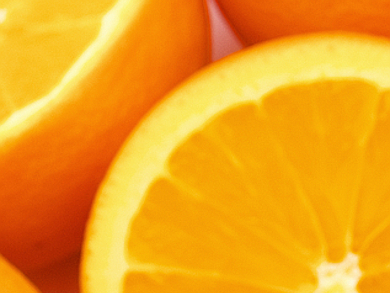Oranges and products thereof are an important dietary source of carotenoids, especially β-cryptoxanthin, which has positive effects on bone-health and -formation.
Ralf M. Schweiggert, University of Hohenheim, Stuttgart, Germany, and colleagues investigated the bioavailability of β-cryptoxanthin from fresh oranges and pasteurized orange juice in a randomized 2-way crossover study. Volunteers had either fresh navel oranges (Citrus sinensis L. Osbeck) or orange juice with a defined β-cryptoxanthin amount for breakfast and subsequently the β-cryptoxanthin blood-level was monitored. The test was repeated and each volunteer was randomly assigned to either of the meals.
The team found that β-cryptoxanthin bioavailability from orange juice is 1.8-times higher than from fresh oranges. As the juice production includes various steps known to influence the level of carotenoids, the team further investigated the various processing steps during juice production. Whereas mechanical orange cell disruption has no effect on the bioaccessibility, a major increase of bioavailability (+162 %) is observed upon the removal of dietary fibers during juice extraction. Subsequent pasteurization only has a minor effect of 40 % on bioavailability.
- Bioavailability of β-cryptoxanthin is greater from pasteurized orange juice than from fresh oranges – a randomized cross-over study,
Julian K. Aschoff, Christa L. Rolke, Nicolle Breusing, Anja Bosy-Westphal, Josef Högel, Reinhold Carle, Ralf M. Schweiggert,
Mol. Nutr. Food Res. 2015.
DOI: 10.1002/mnfr.201500327




